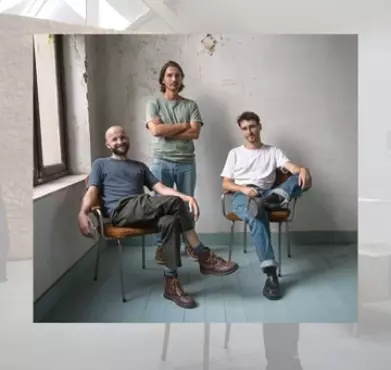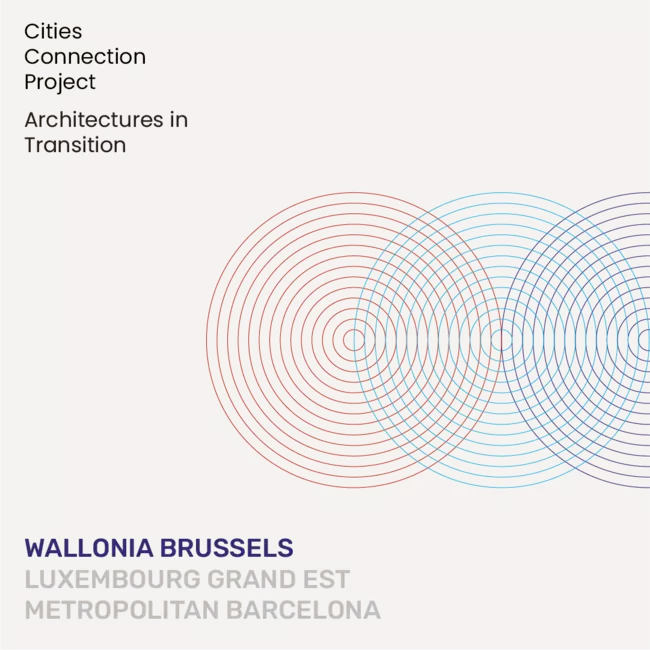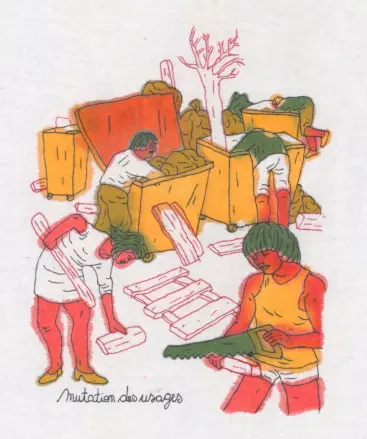- competitionsSite Internet
Contact
vision@tab.eePublié le 17/11/2021
TAB 2022 launches Vision Competition
Image Circular Block: Reinventing theMikrorayon” towards future neighbourhoods in Tallinn
Circular Block: Reinventing theMikrorayon” towards future neighbourhoods in TallinnThe sixth edition of Tallinn Architecture Biennale (TAB 2022) (www.tab.ee), announces the Open Call for its Vision Competition.
TAB 2022, entitled “Edible; Or, The Architecture of Metabolism”, curated by Lydia Kallipoliti and Areti Markopoulou in collaboration with Co-Curator Ivan Sergejev, will take place from September 7th – October 31st, 2022. The event transfers the metabolism and experiential aptitudes of the natural world to the domain of cities and buildings.
TAB 2022’s Vision Competition “Circular Block — Reinventing the Mikrorayon” explores architecture’s expressive capacity to convert waste to energy or matter via circular operations from the micro to the macro scale.
This year’s competition focuses on reimagining Tallinn’s Lasnamäe area, the largest housing district of the city, and its semi-sufficient urban unit, the so-called Mikrorayon. This area was built during the Soviet occupation with the aim of housing workers commuting to nearby factories and the city center. Characterized by large, prefabricated panel housing blocks, it remained unfinished. Today its capacity for growth is limited by its aging housing stock and lack of amenities associated with the economic shortage during its construction, as well as persisting socioeconomic segregation.
In the competition, the main task is to develop visions for new productive and social cohesive urban models that question the traditional linear and discrete consumption and production systems in cities, in Lasnamäe and beyond.
The curatorial team challenges applicants to consider the neighborhood as a territory, and to investigate design strategies that allow urban blocks to produce food for its inhabitants, generate required energy partially off the grid, use waste for generating energy or products, increase urban density using demolition waste, or implement blockchain technology for locally managing energy or material resources, among other possibilities.
“The fragility of our production processes and the mobility networks that transport commodities and resources, such as food, urge new forms of localization and production. We invite architects, planners and urban thinkers to design and envision new connected systems and communities that question the traditional linear and discrete consumption and production systems in cities. Initially conceived for the Soviet micro-districts —mikrorayons— of Lasnamäe in Tallinn, the competition's novel and scalable proposals should stand at the core of reinventing urban centers as productive and socially cohesive metabolic systems”
– say Lydia Kallipoliti and Areti Markopoulou, Head Curators of TAB 2022.The deadline for submissions is February 28th, 2022 and winners will be selected by May 2022 by an international jury comprising of Winy Maas (MVRDV, The Netherlands), Kaidi Põldoja (Spatial Planning Competence Centre of the Strategic Management Office of the City of Tallinn, Estonia), Benedetta Tagliabue (Miralles Tagliabue EMBT, Spain), Toomas Tammis (ArhitektuuriAgentuur and Allianss Arhitektid OÜ, Estonia), and Veronika Valk-Siska (Ministry of Culture of Estonia, Estonia).
All winning and selected proposals will be exhibited at TAB 2022. Competition awards consist in:
first prize: €4.000
second prize €2.000
third prize €1.000
+ five honourable mentions
The complete Vision Competition brief is available at www.tab.ee.
Participants may submit relevant questions until December 1st, 2021 to: vision@tab.ee.
- actionsDate de l'événement
5/12/2024Publié le 28/10/2024
-
A vos agendas ! Cities Connection Project #7 à Bruxelles
Nous avons le plaisir de vous convier au vernissage de l’exposition Cities Connection Project qui aura lieu le 5 décembre 2024 à 20h30 à la Faculté d [...]
- actionsDate de l'événement
20 - 30/11/2024Publié le 28/10/2024
-
Inventaires#4 à Paris
Nous avons le plaisir de vous inviter à la présentation de l'ouvrage Architectures Wallonie-Bruxelles Inventaires #4, Vers une démarche architecturale [...]




